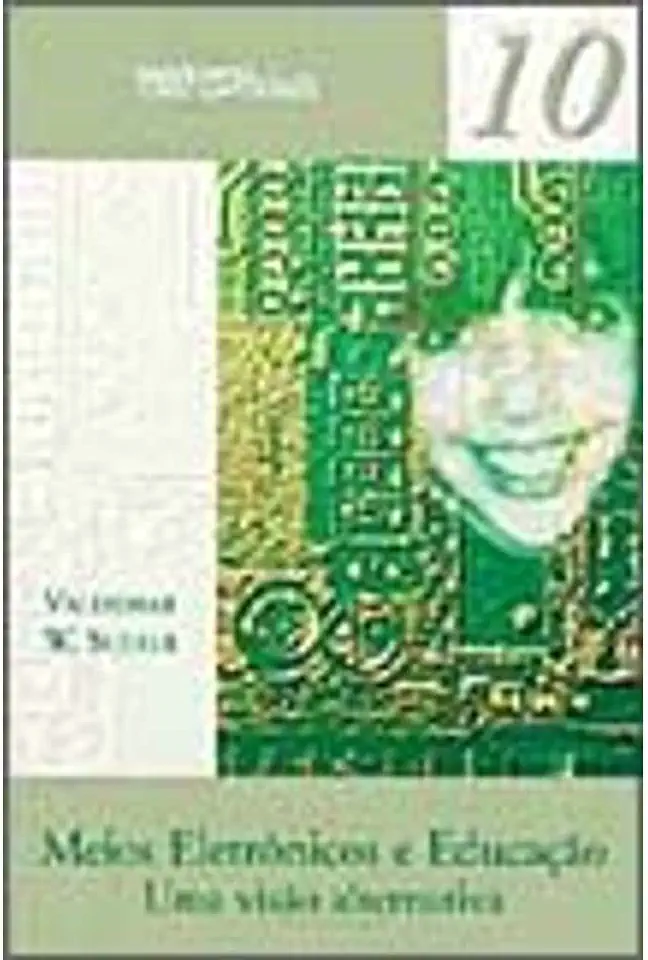
Electronic Media and Education: An Alternative View - Valdemar W. Setzer
Electronic Media and Education: An Alternative View by Valdemar W. Setzer
In his groundbreaking book, "Electronic Media and Education: An Alternative View," Valdemar W. Setzer challenges conventional wisdom about the role of technology in education. Setzer argues that the uncritical embrace of electronic media in schools is misguided and that it is time for educators to take a more critical stance.
A Critique of the Technological Imperative
Setzer begins by critiquing the "technological imperative," the belief that technology is inherently good and that it will inevitably lead to educational progress. He argues that this belief is based on a number of unfounded assumptions, including the idea that technology is neutral and that it can be used for any purpose.
Setzer argues that technology is not neutral, but rather that it is a tool that can be used for good or for evil. He points to the example of the printing press, which was used to spread knowledge and enlightenment during the Renaissance but was also used to spread propaganda and misinformation during the Nazi era.
Setzer also argues that the technological imperative ignores the importance of human agency. He argues that it is not technology itself that leads to educational progress, but rather the way that technology is used by teachers and students.
The Dangers of Educational Technology
Setzer identifies a number of dangers associated with the uncritical use of educational technology. These dangers include:
- The narrowing of the curriculum. Educational technology can lead to a narrowing of the curriculum, as teachers focus on those subjects that are easily taught using technology. This can result in students missing out on important learning opportunities.
- The dehumanization of education. Educational technology can lead to the dehumanization of education, as teachers and students interact with each other through screens rather than in person. This can result in a loss of personal connection and a decrease in student engagement.
- The surveillance of students. Educational technology can be used to track and monitor students' activities, which can lead to a loss of privacy and a decrease in student autonomy.
An Alternative View of Educational Technology
Setzer argues that it is time for educators to take a more critical stance on educational technology. He proposes an alternative view of educational technology that is based on the following principles:
- Technology should be used to support, not replace, traditional teaching methods. Technology should be used to enhance the learning experience, not to replace teachers or traditional teaching methods.
- Technology should be used to empower students, not to control them. Technology should be used to give students more control over their learning, not to track and monitor their activities.
- Technology should be used to promote equity, not to exacerbate inequality. Technology should be used to ensure that all students have access to a quality education, regardless of their socioeconomic status or background.
Conclusion
"Electronic Media and Education: An Alternative View" is a must-read for anyone interested in the role of technology in education. Setzer's critique of the technological imperative is well-argued and persuasive, and his alternative view of educational technology is both visionary and practical. This book is a valuable resource for educators, policymakers, and parents who are concerned about the future of education.
Why You Should Buy This Book
If you are interested in the role of technology in education, then you need to buy this book. "Electronic Media and Education: An Alternative View" is a groundbreaking book that will challenge your assumptions about educational technology and inspire you to think critically about how technology can be used to improve education.
This book is essential reading for educators, policymakers, and parents who are concerned about the future of education. It is a valuable resource that will help you to make informed decisions about how to use technology in your school or home.
Don't miss out on this opportunity to learn more about the role of technology in education. Order your copy of "Electronic Media and Education: An Alternative View" today!